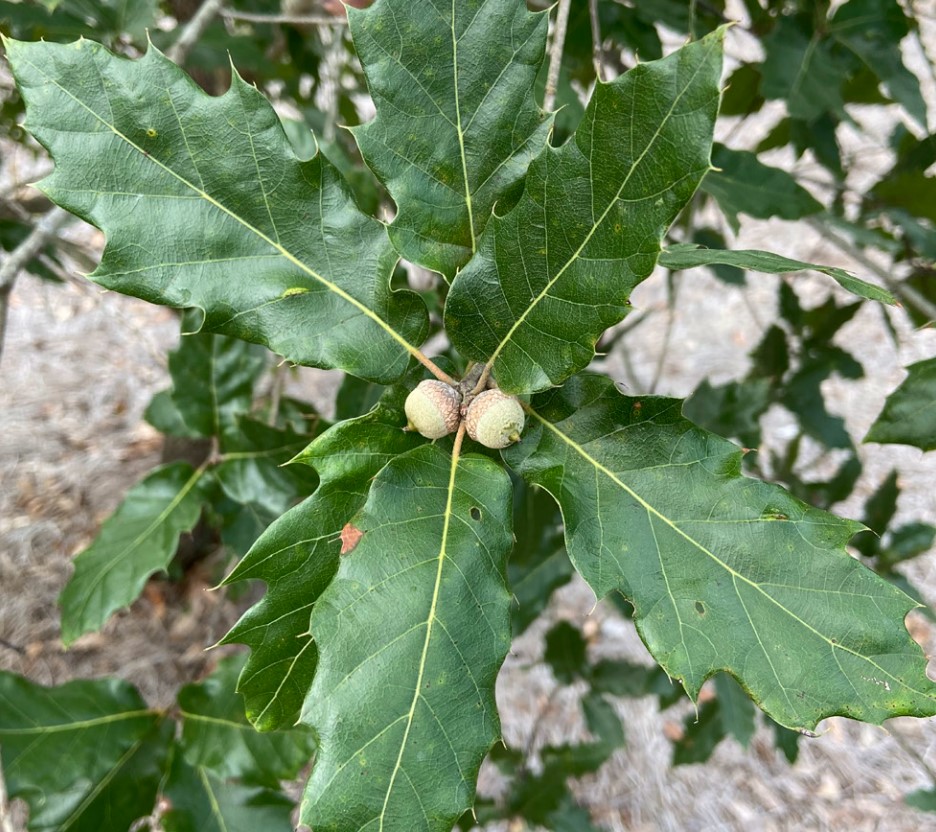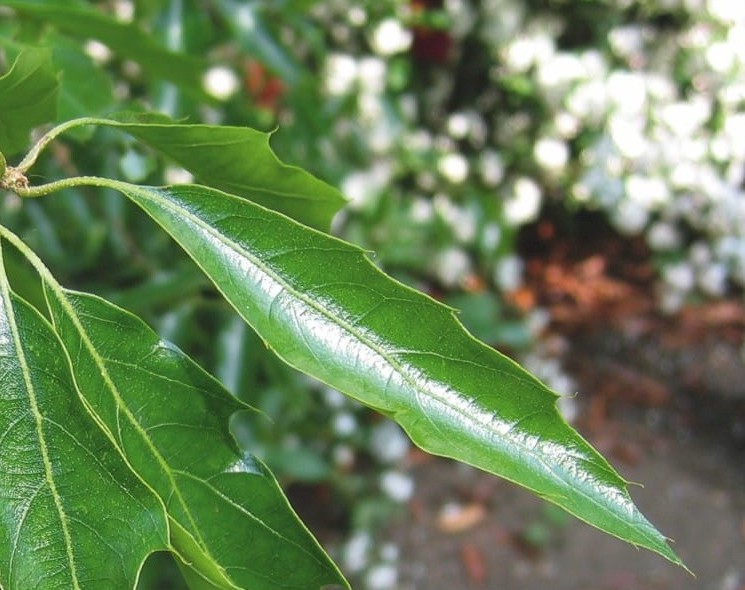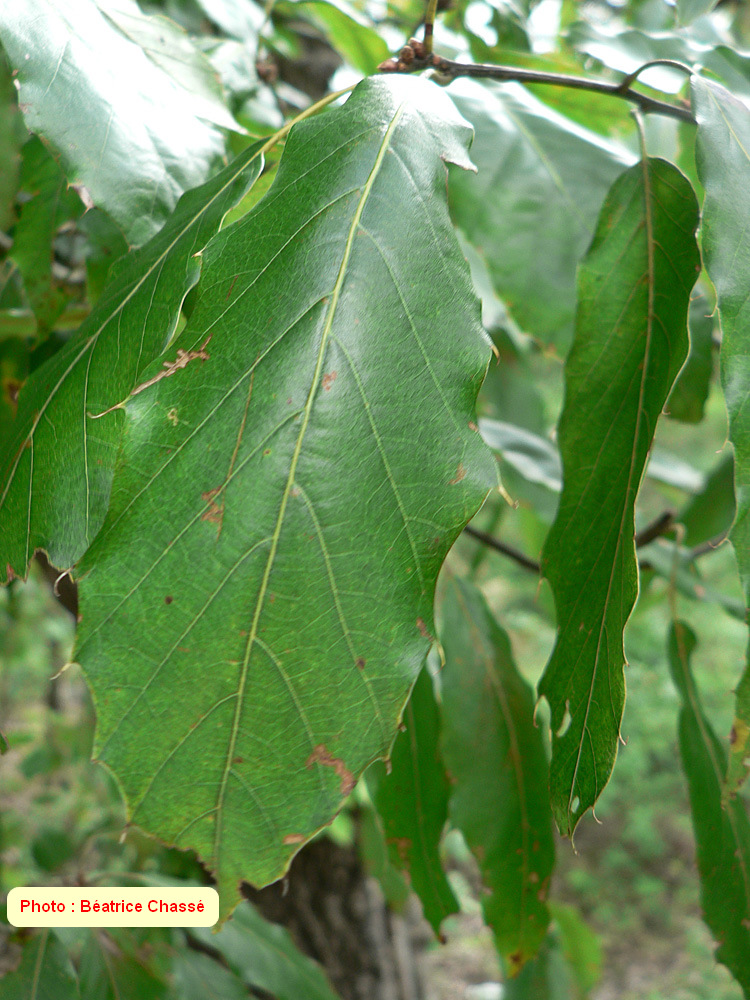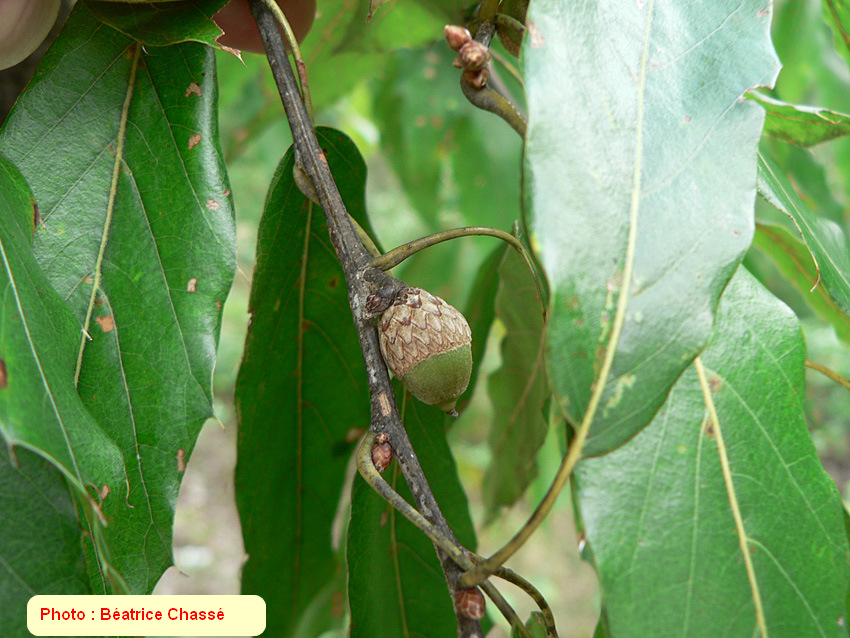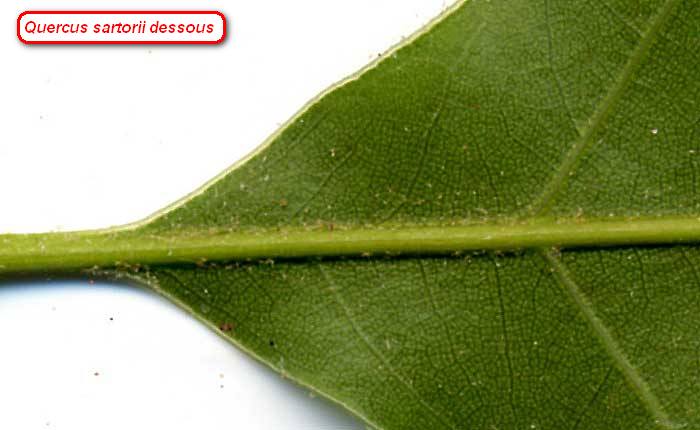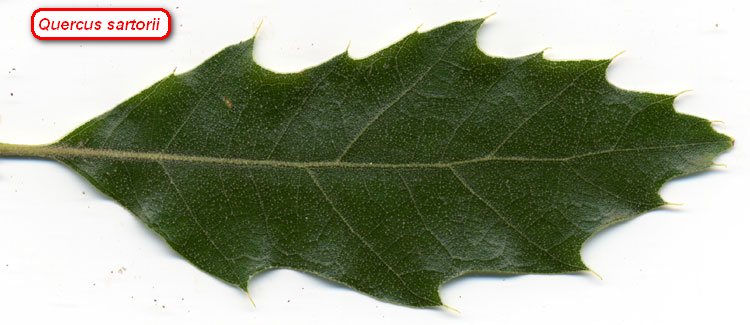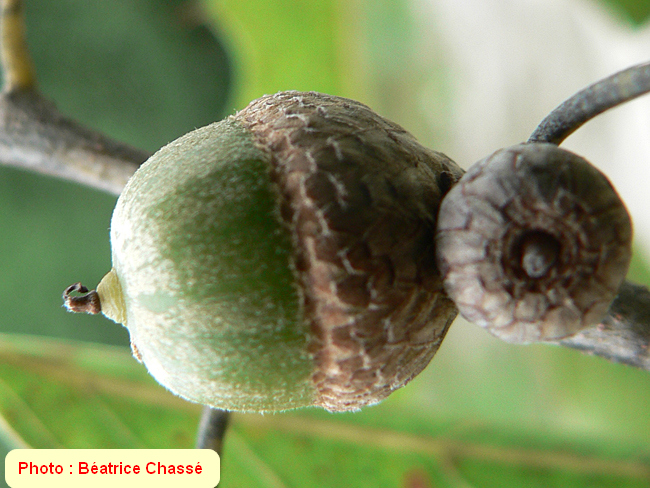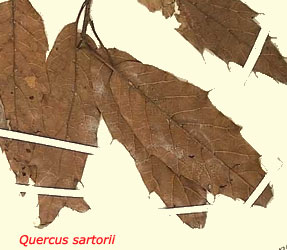| Quercus sartorii | |
| Author |
Liebm. 1854 Overs. Kongel. Danske Vidensk. Selsk. Forh. Medlemmers Arbeider 1854: 177 not Botteri ex A.DC 1864 Diagnosis here |
| Synonyms | sartorii f. magna Trel. 1924 |
| Local names | |
| Range | Mexico
(Veracruz, San Luis Potosi, Hidalgo, Puebla, Oaxaca, Tamaulipas) ; |
| Growth habit | reaches
25 m tall; |
| Leaves | 9-12
cm x 3-4; subleathery; lanceolate to elliptic ; apex acute, sometimes
acuminate, bristle-tipped; base rounded or truncate, seldom cuneate, often
asymmetric; margin not rolled under, crispate or not, with bristles alone,
or most frequently with 6-8 pairs of bristle-tipped teeth on the apical
1/2 or 2/3 of margin; young leaves purplish and hairy; mature leaves green,
dull or sometimes slightly lustrous, glabrous above or with some stellate
hairs near base; glabrous or with axillary, stipitate, rusty tufts |
| Flowers | in February; |
| Fruits | acorn
ovoid, almost globose, 1-1.3 cm long x 0.7-1 cm wide, hairless; singly
or paired on a 4-12 mm long peduncle; cup halfround, enclosing 1/3 to
1/2 of nut; maturing in 1 year from September to November; |
|
Bark, twigs and |
dark grey, scaly bark; twig slender, 1.7-2.3 mm thick, dark brown, tomentose at first then hairless; bud conical or ovoid, 3-4.5 cm long; lenticels inconspicuous; |
| Hardiness zone, habitat | hardy in zone 7; deciduous in cold climates; prefers deep soils; |
| Miscellaneous | --
A. Camus : n° 385; -- Sub-genus Quercus, section Lobatae, Series Erythromexicanae, Group Acutifoliae; -- For today's Mexican Authors (Silvia Romero Rangel 2006), as for Govaerts 2013 (The Plant List), this species is a synonym of Q.xalapensis; actually it is a different species, xalapensis having wider leaves, larger bristle-tipped teeth, and an acorn maturing in 2 years; -- Very similar to Q. furfuracea, if not identical ?? -- Possible confusion with Q. paxtalensis, which has leaves more shiny, longer aristate teeth, and a cup turbinate. -- Q. sartorii Botteri ex A.DC is a synonym of Q. grahamii |
| Subspecies and varieties |
|
| Pictures |
|
